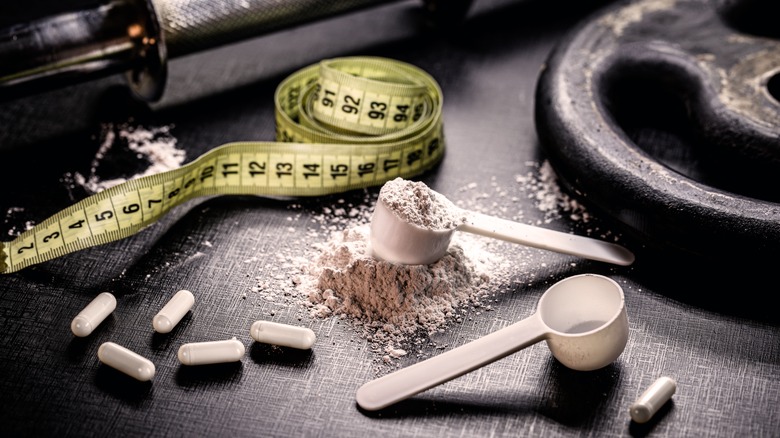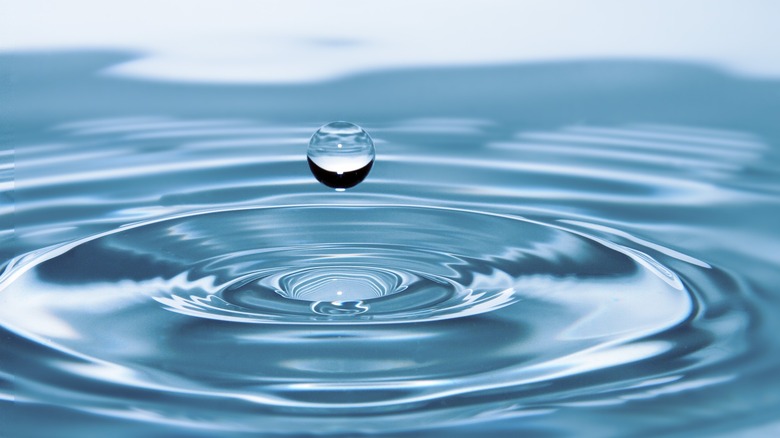What Happens When You Don't Drink Enough Water While Taking Creatine?
Creatine has long been a popular supplement for athletes looking to improve their performance (via WebMD). A natural substance that helps create adenosine triphosphate, also known as ATP, which gives the body the energy it needs for muscle contractions, creatine is formed from the amino acids L-arginine, glycine, and L-methionine (via Medical News Today).
According to a 2012 study published in the Journal of the International Society of Sports Nutrition, approximately 95% of a person's creatine stores can be found in their skeletal muscle, with the remaining 5% being found in the brain, liver, kidney, and testes. The same study noted that creatine, being more present in meats, is not as high in the bodies of vegetarians.
Most people get their creatine through milk, seafood, and red meat (via Cleveland Clinic). However, athletes often boost their creatine through supplements, with the aim of getting an energy boost and enhanced strength to assist in workouts and performance during competition. But can there be risks of dehydration from taking creatine while working out?
Creatine draws water from other parts of your body
As you work out, creatine hydrates your skeletal muscles in a process known as myofibril hydration (via Healthfully). It does this by pulling water from other parts of your body to hydrate the muscles. As a result, those parts can be left without adequate water, which could lead to dehydration.
However, a 2021 study published in the Journal of the International Society of Sports Nutrition noted that the amount of water pulled from the body is minor, and that athletes who took creatine had fewer cases of dehydration than those who didn't.
With that said, it's important to be smart when using creatine. The Cleveland Clinic warns that it can potentially be dangerous to take creatine if you are dehydrated.
In addition, you shouldn't mix drinking alcohol and taking creatine (via Healthline). Alcohol is a diuretic, pulling water from your tissues, which can lead to muscle cramping and dehydration. This also means that the creatine is unable to hydrate your muscles properly, negating the energy boosts that the supplement would ordinarily provide.
In general, it's advisable to stay hydrated while taking creatine in order to get the most out of the supplements.
Keep the water flowing
Although creatine by itself may not lead to serious dehydration, not hydrating properly while working out with creatine supplements can cause symptoms of dehydration, discomfort, and fatigue (via Dr. Workout). You don't need to over hydrate, but you should make sure you are drinking enough water.
When it comes to creatine supplements, it's important to research extensively and speak with your healthcare provider beforehand (via Cleveland Clinic). The U.S. Food and Drug Administration does not regulate these kinds of supplements, so the quality and ingredients of different products may vary.
In addition, the effects of creatine supplements on the body's major organs like the heart, brain, kidneys, and liver are not yet fully known. Nor are the effects of combining these supplements with prescription drugs, energy drinks, vitamins, or over-the-counter medications.
If you take any medications, have kidney issues, or are pregnant or nursing, always check with your doctor before adding creatine to your workout regimen.



